Call Us On (877)-585-0677 To Speak To An Expert Today!
What is Porn Addiction? And How To Overcome
Porn addiction is when someone feels a compulsive need to watch porn, even though it’s hurting their life in some way. It becomes a cycle that’s hard to break, despite the negative consequences.
In today’s always-connected world, the easy access and anonymity of online porn have turned it into a growing problem. It's become more available than ever, making it a bigger concern for many people.
Porn addiction is a simple way to describe different types of compulsive sexual behaviors, each with its own underlying causes.
Understanding these causes is key to building a healthy approach to sexuality and living a more fulfilling life. As you'll see, it's a complex (and sometimes controversial) condition, influenced by many factors we'll dive into below.
Interestingly enough, despite its popularity, porn addiction is NOT a recognized mental health disorder. The American Psychiatric Association rejected porn addiction as a treatment model after five years of field studies, and the World Health Organization also rejected the “addiction” label in favor of a process disorder.
The World Health Organization calls it compulsive sexual behavior disorder (CSBD). It is an impulse control disorder (not an addiction according to the WHO) that involves a persistent inability to control intense and repetitive sexual urges. It can lead to repetitive sexual behaviors that cause significant distress or impairment in a person's life for at least six months. This impairment can affect personal, familial, social, educational, or occupational areas. CSBD can also involve preoccupation with sexual fantasies, using sexual behaviors to cope with stress, and a risk of causing harm to oneself or others. This according to the WHO is a process disorder.
The compulsive porn use is really just the symptom of something deeper. If you don’t get this, you’ll stay stuck, focusing on the symptom instead of addressing the real issues beneath it. Building healthy sexuality and a great life requires more than just quitting porn—sobriety is just one piece of the puzzle. Don’t forget that.
If you're seeking help for your porn addiction, it's crucial that your treatment provider understands these deeper, complex issues.
Only then can you address the real causes behind the lying, compartmentalizing, lack of empathy, poor coping strategies, unhealthy sexuality, and low self-esteem. Let’s dive into this together.
Tackling porn addiction is critical because it doesn’t just impact the person struggling with it—it affects their relationships, mental health, and overall well-being. It’s a strong symptom of deeper issues, and now is the time to bring this to light and offer the tools needed for those facing it to reclaim their lives.
2. Defining Porn Addiction
What is Porn Addiction?
Porn addiction, like any other addiction or compulsive behavior, is marked by the inability to control the use of porn, even when it’s causing harm. This term usually covers behaviors like watching porn, masturbating, orgasming (PMO), camming, and any form of erotic visual content.
These behaviors often serve as coping strategies to avoid discomfort and pain. This is why world-recognized expert Craig Perra says in his podcast Sex Afflictions & Porn Addictions, “the behavior is the symptom … always.”
It manifests in various ways, including:
Spending way too much time watching porn.
Ignoring personal, work, or social responsibilities because of watching porn.
Turning to porn as a way to deal with stress, anxiety, or other emotional problems.
Feeling low self-esteem, shame, depression, and anxiety.
Feeling irritable, restless, or anxious when trying to cut back on watching porn.
Watching more extreme or different types of porn to get the same level of satisfaction.
Severe relationship problems. Hiding sexual secrets and lying can destroy trust and cause deep emotional pain for your partner.
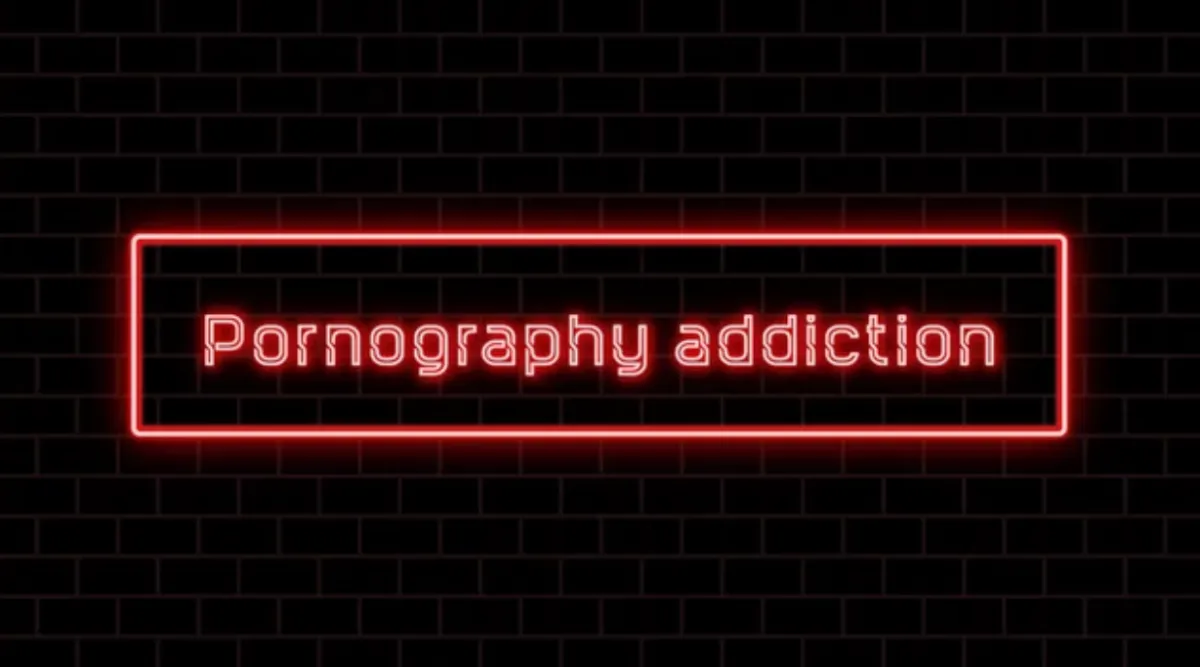
Is Porn Addictive?
The debate about whether porn is truly addictive is ongoing, but what’s clear is that for many people, it can become highly compulsive and destructive.
The brain’s reward system, which releases dopamine when we experience pleasure, can get overstimulated by constant exposure to porn.
This overstimulation can cause changes in the brain, similar to what happens with substance addiction. However, there's some controversy around this. The truth is, there are often many underlying mental health issues that drive the compulsive behavior, and it's important to address those as well.
Over time, some individuals need to consume more porn or more extreme content to achieve the same dopamine "high," leading to a cycle of increasing consumption and dependence, which can further lead to PMO Addiction.
Understanding porn addiction involves recognizing it as a real and serious issue. It's not about moral judgment but about addressing a behavioral pattern that can significantly impair one's quality of life. Ask yourself this: are you in control or not? If not, you have a problem. If this problem is causing serious consequences in your life, you may need professional help.
By recognizing the problem and reaching out for help, people can start their journey toward recovery and build healthier relationships with themselves, their partner, and those around them.
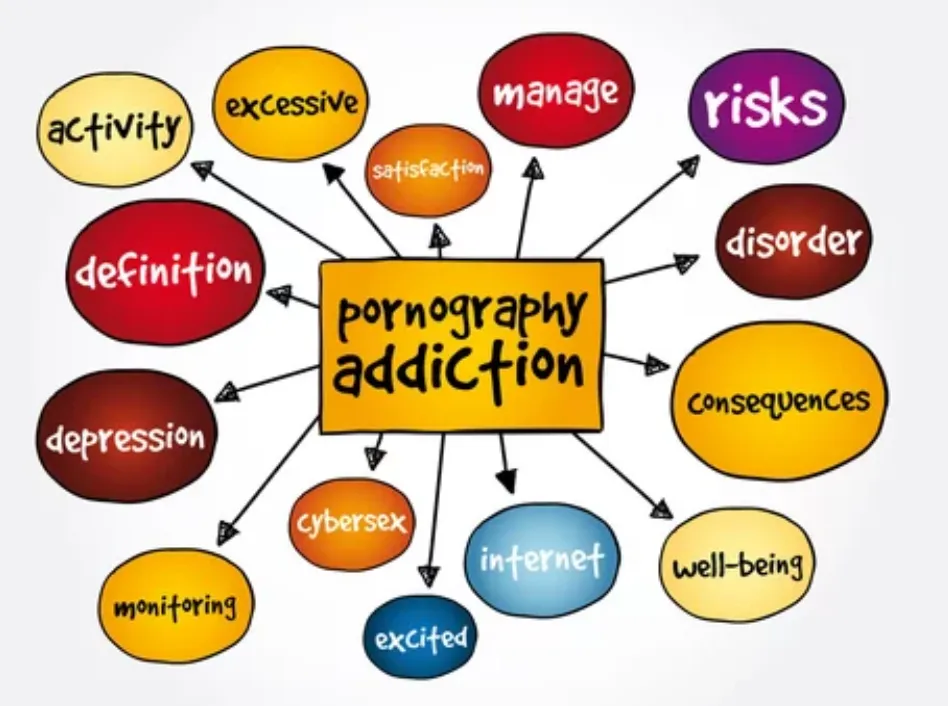
3. Signs and Symptoms of Porn Addiction
Recognizing the signs and symptoms of porn addiction is a critical first step in tackling the issue. These signs usually fall into three categories: behavioral, emotional, and physical indicators.
Behavioral Signs of Porn Addiction:
Ignoring Responsibilities: People might start neglecting important personal, professional, or social responsibilities. This could mean missing work, not meeting deadlines, or pulling away from social interactions just to spend more time watching porn.
Risky Behavior: Engaging in risky behaviors, like watching porn in inappropriate places or trying to hide how much they consume, can put their job, relationships, and reputation at serious risk.
Increased Secrecy: A growing problem can be spotted when someone becomes more secretive about their internet use and avoids sharing or discussing their online activities.
Resentment Towards Spouse: many porn addicts in relationships begin to resent their partners because they feel insignificant (“nothing I do is ever good enough”), unloved (“she doesn’t appreciate and respect the good parts of me”), and controlled (“she’s always telling me what to do, and she’s trying to take away my security blanket”). While most of these feelings are a projection, they reflect a man who is lost and unable to proactively get his needs met in a healthy, constructive way.
Emotional Signs of Porn Addiction:
Frustration: People may feel intense frustration when they can't watch porn, which often leads to irritability and short tempers. It's important to remember that, for many, porn started as a coping strategy in childhood, used to escape emotional distress.
Shame: A common emotional symptom is a deep sense of shame or guilt about watching porn, which can make someone feel even more isolated and stop them from seeking help. This shame often begins in childhood when the person learns early on that they need to keep "it" a secret.
Anxiety: Constant anxiety about their porn habits or fear of being found out can take a serious toll on their mental health and well-being. Porn often acts like anxiety medication—it provides quick relief in the short term, but causes significant harm in the long run.
Mood Swings: Frequent and unpredictable mood swings, often tied to their porn habits, can be another emotional red flag. On a deeper level, the person struggling with porn addiction often lacks the ability to manage stress and anxiety both emotionally and physically. In some cases, these mood swings may even be signs of underlying conditions like bipolar disorder.
Physical Signs of Porn Addiction:
Changes in Sexual Function: Porn addiction can cause changes in sexual function, like erectile dysfunction or feeling less satisfied with a real-life partner. This happens because frequent porn viewing can alter expectations and lead to desensitization. The intense visuals and “death grip” that many porn addicts rely on make it difficult, or even impossible, for them to ejaculate with their partners.
Neglect of Physical Health: Compulsive behavior, like porn addiction, often stems from poor self-care and low self-esteem. Many porn addicts neglect their physical health, skipping meals, sleep, or exercise to spend more time watching porn or wasting time in other ways. They tend to eat poorly, sleep irregularly, stay dehydrated, and avoid exercise, which is often a reflection of how they feel about themselves. Over time, this neglect leads to a noticeable decline in both physical health and energy levels.
Fatigue: Persistent tiredness is common among porn addicts, often caused by late-night or extended sessions watching porn, which leads to poor rest and lack of sleep. This leaves them feeling a constant sense of malaise, like a dark cloud hanging over them, affecting their energy and mood throughout the day.
Recognizing these signs and symptoms is the first step toward understanding and tackling porn addiction. It reveals that the person isn’t prioritizing their physical, mental, relationship, or spiritual health, and addressing these areas is crucial for recovery.
Recognizing these problems gives individuals the power to seek the help and support they need to take back control and reclaim their lives.
It is essential to approach this issue with compassion and understanding, providing a safe space for individuals to acknowledge their struggles and begin the journey toward recovery.

4. The Science Behind Addiction
Understanding the science behind porn addiction is crucial for grasping its impact on the brain and behavior.
And the truth is the science is still not settled. We know it’s compulsive, but we aren’t sure if using an 80+ year old treatment model (Alcoholics Anonymous/12 Steps) invented to treat the disease of alcoholsm is the best way to treat this problem. For many, it’s not.
At its core, addiction in general hijacks the brain's reward system, which is designed to encourage behaviors necessary for survival, such as eating and reproduction.
Brain Mechanisms:
Reward System: When someone watches porn, the brain releases dopamine, the chemical linked to pleasure and reward. This dopamine hit reinforces the behavior, making them want to watch more. Keep in mind, for many, porn is used as a way to numb, cope, and escape from stress or emotional pain.
Desensitization: Over time, the brain gets desensitized to the same level of stimulation, so it craves more extreme or new content to trigger the same dopamine release. This cycle leads to heavier consumption and dependency, which only deepens feelings of low self-esteem, greater shame, and puts a serious strain on relationships.
Altered Brain Function: Some experts believe that prolonged porn consumption can actually change the brain’s prefrontal cortex, which is in charge of decision-making and impulse control. When this happens, it can lead to poor judgment and a lack of control over consumption, making the addiction even harder to break.

5. What Causes Porn Addiction?
Porn addiction is complex, rooted in a mix of psychological, social, biological, and environmental factors. It’s not just about the behavior—it’s influenced by a wide range of underlying issues.
Psychological Factors:
Underlying Mental Health Conditions: All porn addicts have underlying mental health issues, yet not all have diagnosable conditions.
For example, individuals with mental health issues such as depression, anxiety, or trauma may turn to pornography as a coping mechanism, seeking temporary relief from their emotional pain. Remember, the compulsive behavior is the symptom.
Some porn addicts have bipolar disorder, others OCD, and others present certain symptoms of narcissism and in fewer cases, borderline-type behavior.
Regarding trauma, I have a saying, “the greater the trauma, the greater the addiction.” Often, porn was used at an early age to numb the pain of trauma like physical, mental, and sexual abuse and neglect.
Low Self-Esteem: All porn addicts have low self-esteem. These two factors always go hand in hand in my decade + experience. I’ve never met a porn addict with high self-esteem. They often hate themselves, think that they are “pieces of shit,” and are drowning in shame.
Those with low self-esteem or a lack of confidence may use porn to escape feelings of inadequacy or to create a sense of control and validation.
Learning to feel good about yourself and live a life with a sense of purpose is critical to “cure” porn addiction. Most symptom-centric approaches fail to address this critical underlying cause.
Social Factors:
Influence of Social Norms: Societal views on sex and pornography can heavily influence an individual's habits.
In many cultures, the normalization of porn makes it seem harmless or even expected, especially among young people.
What was once seen as deviant behavior has become normalized and accepted in many men's magazines today.
Peer Pressure: Peer influence can have a major impact, particularly on young people. The need to fit in or be accepted often pushes individuals to watch porn, even if they’re not entirely comfortable with it.
The common saying is, “Everyone’s doing it,” which can make it feel like the norm.
Biological Factors:
Genetic Predispositions: Some people might have a genetic predisposition to addictive behaviors, which can make them more vulnerable to developing a porn addiction.
Brain Chemistry: Differences in brain chemistry, especially within the dopamine system, can make certain individuals more susceptible to addiction.
Those with naturally lower dopamine levels might turn to activities like watching porn to get that big dopamine boost they’re craving.
Environmental Factors:
Easy Access to Pornography: The internet has made pornography more accessible than ever before. The availability of free and high-speed pornographic content can facilitate compulsive consumption.
Societal Attitudes: Societal attitudes towards sex and pornography can contribute to the normalization and acceptance of porn use. In some cases, these attitudes can minimize the perceived risks of excessive consumption.
Shame: On the flip side, porn addiction and its critical counterpart, healthy sexuality, is rarely talked about and shamed - especially in some religious circles.
Despite over 57% of religious leaders and ministers admitting to having a problem with pornography, it’s still not openly discussed despite impacting 10s of millions of people.
Stress and Life Circumstances: High levels of stress, isolation, or significant life changes can increase the likelihood of turning to porn as a coping mechanism or escape from reality.
The greater the loneliness and lack of connection, the greater the porn addiction and its underlying causes. “The opposite of addiction isn’t sobriety, it’s connection.” Johan Hari.
Childhood Trauma: Childhood trauma can significantly contribute to the development of porn addiction.
Unresolved emotional wounds often drive individuals to seek comfort or escape through unhealthy behaviors, like turning to porn.
The pain and confusion from traumatic experiences can create a cycle of dependency, where porn serves as a coping mechanism to numb or escape deep emotional pain.
This effect is even stronger when the underlying trauma is sexual in nature. Even in the absence of trauma, certain childhood sexual experiences can negatively shape the perspective of a porn addict, reinforcing feelings of shame and secrecy.
Understanding and addressing these underlying traumas is crucial for long-term recovery and healing.
Unhealthy Childhood Sexual Education: Hiding pleasure-seeking behavior like porn and masturbation is often a man’s oldest and most impactful habit - it often starts well before puberty.
Sexuality is often either shamed—think “fire and brimstone”—or completely ignored, leading to neglect. Boys frequently miss out on learning how to channel their strong sexual energy and, as a result, don’t develop a healthy respect for it.
Instead, they learn to hide their feelings, and this secrecy often carries into adulthood. That powerful energy continues to build in the shadows, sometimes leading to severe consequences, like shattered families and marriages.
By grasping the complex interplay of these factors, we can more effectively tackle the root causes of porn addiction and create solid strategies for prevention and treatment. Awareness and education are crucial in helping individuals recognize their vulnerabilities and find the support they need.

6. Impact Of Porn Addiction On Life and Relationships
Personal Life:
Self-Esteem: Consistent porn consumption can lead to feelings of inadequacy and low self-esteem, and the cycle goes both ways—low self-esteem can also drive someone deeper into porn addiction. It’s a tough cycle that reinforces itself over time.
People often compare themselves negatively to the unrealistic images they see in porn, which can lead to body image issues and a lower sense of self-worth. This constant comparison can be damaging and further fuel feelings of inadequacy.
Porn addicts also often feel deep shame for their secret behavior. Creating an identity of healthy self-esteem is mandatory if you want to be successful.
Low self-esteem is almost always the root cause of the compulsive behavior.
Mental Health: Porn addiction is often linked to mental health problems such as depression, anxiety, and loneliness.
The cycle of addiction can exacerbate these conditions, creating a vicious loop that is difficult to break. This is why it’s critical to treat the underlying issues. “Sobriety is less than 10% of the solution,” I like to say. Healthy sexuality is a critical component of mental health.
Daily Functioning: The compulsion to view porn can interfere with daily activities, leading to neglect of personal responsibilities, hobbies, and social interactions.
Most porn addicts lack healthy connections and don’t have hobbies that make them feel good about themselves. They almost always lack a sense of purpose - they are disconnected from their “why.”
This can result in a decline in overall quality of life and well-being. It is also correlated with poor physical health and physical health and mental health go hand in hand.
Relationships:
Romantic Relationships: Porn addiction can destroy romantic relationships, causing a lack of intimacy and trust.
Partners may feel neglected, betrayed, or inadequate due to a porn addiction, which can lead to conflicts, emotional distance, and even breakups or divorces. The lying that often accompanies the addiction is usually the most damaging part, breaking trust and deepening the divide between partners.
Healthy sexuality within a marriage is vital for long-term success. When one partner secretly uses porn, it can cripple the relationship and intensify existing conflicts, making it harder to maintain a strong connection.
Family Relationships: The addiction can also impact family dynamics, particularly if it leads to secrecy and dishonesty.
Family members may feel hurt or confused by the behavior of someone struggling with addiction, leading to emotional distress and breakdowns in communication.
Often, porn addicts may be physically present but mentally checked out, which creates a disconnect. This can be especially hard on children, who are sensitive to conflict and need ongoing support and reassurance.
Professional Life:
Risks at Work: Watching porn at work is a major risk that can result in disciplinary action or even job loss. This behavior can seriously harm one’s professional reputation and contribute to a toxic work environment.
Consequences: Even when off the clock, porn addiction can impact job performance. It can lead to decreased productivity, lack of focus, and absenteeism, all of which jeopardize career prospects and financial stability.
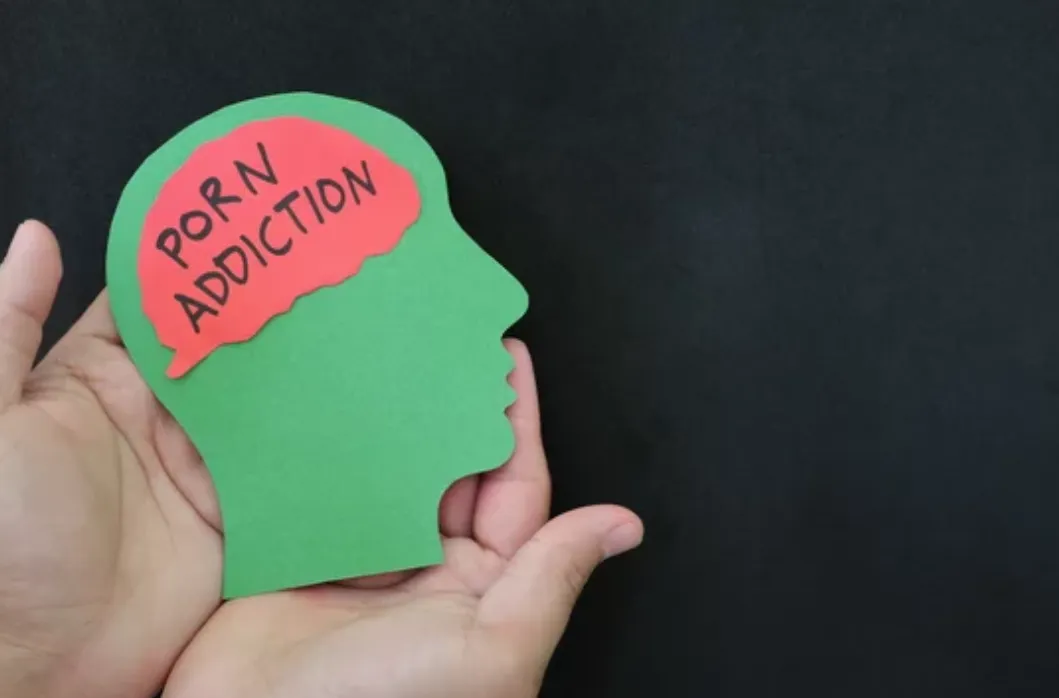
7. Studies and Statistics
Self-Esteem and Mental Health: Research shows that people with porn addiction often experience lower self-esteem and higher levels of depression and anxiety compared to those who don't struggle with this addiction.
Porn Addiction and the Church: The largest study of its kind ever conducted found that most pastors (57%) and youth pastors (64%) admit they have struggled with porn, either currently or in the past.
Click here to read the Barna study. The failure to discuss these issues honestly and openly creates a culture of silence that only increases shame and porn addiction.
Relationship Impact: Studies indicate that couples dealing with porn addiction are more prone to relationship dissatisfaction and conflict. A large percentage of partners report feelings of hurt, betrayal, and reduced sexual satisfaction as a result.
Professional Consequences: Surveys have found that a notable portion of individuals admit to viewing porn at work, with some facing disciplinary actions as a result.
Companies are also worried about decreased productivity and the increased risk of legal issues stemming from inappropriate internet use.
As a result, many maintain a zero-tolerance policy because of the legal exposure that comes from employees watching porn at work.
I’ve personally worked with a number of Fortune 500 senior executives that either were terminated or demoted because of their porn use at work. Some of them have been sued for creating an unhealthy work environment and sexual harassment when there were caught watching porn by employees at work.
The impact of porn addiction on personal life, relationships, and professional life is profound and multifaceted.
By acknowledging these consequences, individuals and their support systems can better understand the importance of seeking help and working towards recovery - healthy sexuality and a great life.
Addressing the addiction with compassion and a comprehensive approach is crucial for healing and rebuilding a fulfilling life.
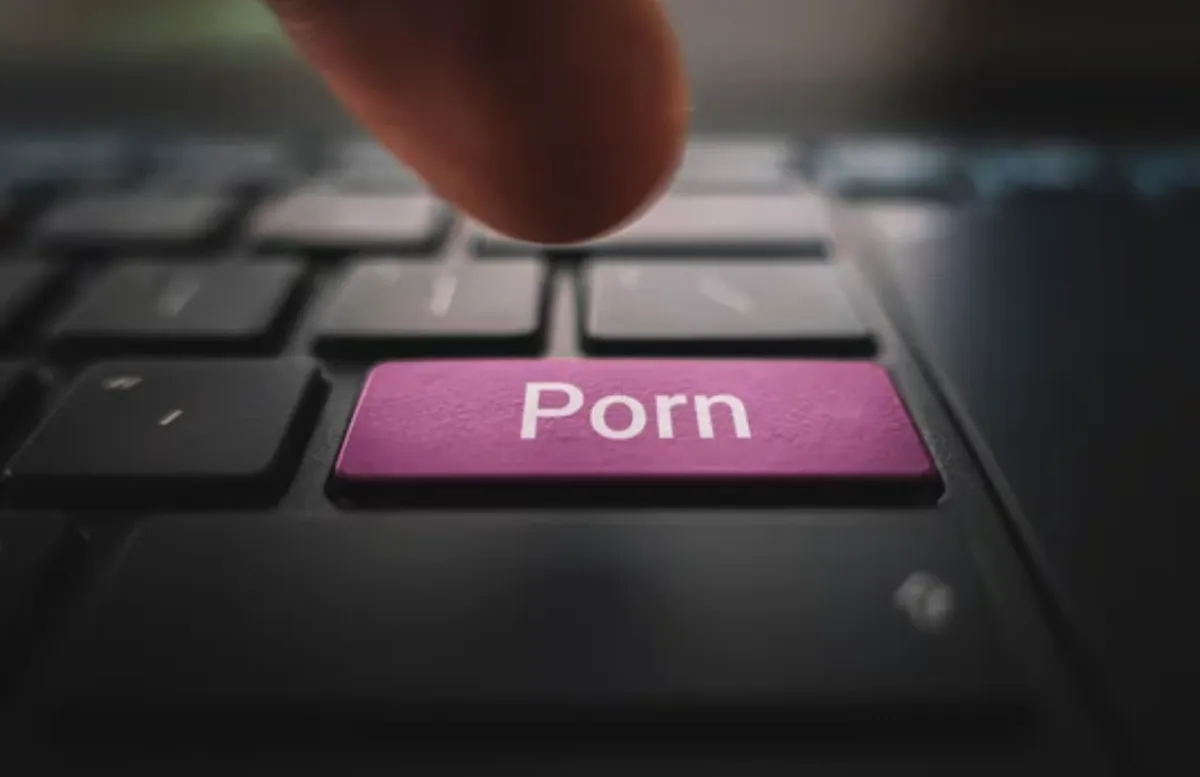
8. Treatment Options
Addressing porn addiction requires a multifaceted approach, as the condition affects both the mind and behavior. Here are several treatment options that have proven effective in helping individuals overcome porn addiction.
Psychotherapy and Coaching:
Comprehensive Healing Programs for Both Husband and Wife: Developed by the dynamic husband and wife team, Craig and Michelle Perra, The Mindful Habit System has, for over a decade, provided unparalleled support to couples navigating the turbulent waters of betrayal trauma and porn addiction.
Based upon publically available and verified testimonials, it is currently the highest-rated porn addiction treatment program in the world - click here to read verified testimonials. This comprehensive program empowers both husband and wife, facilitating profound healing, growth, and transformation, turning pain into strength and resilience.
It is also one of the few programs that stands behind it’s results, by offering a 100% 30-day money return policy if it’s not a fit.
Trauma-Informed Betrayal Trauma Treatment for Spouse: Dr. Debi Silber, Founder of the PBT (Post Betrayal Transformation) Institute, is an award-winning speaker and a 2-time #1 International bestselling author who offers a number of powerful programs.
Her podcast, From Betrayal to Breakthrough, is also globally ranked within the top 1.5% of podcasts. Her recent PhD study on how we experience betrayal made three groundbreaking discoveries that changes how long it takes to heal. She offers a number of powerful programs dedicated to helping partners move past their betrayal trauma as well as any other blocks preventing them from the health, work, relationships, confidence, and happiness they want most.
12-Step Programs: Programs like Sex Addicts Anonymous (SAA) and Sexaholics Anonymous (SA) utilize a structured peer-support model similar to Alcoholics Anonymous, emphasizing abstinence, personal inventory, and making amends.
While these programs are popular, and the community they provide can be very helpful, their effectiveness remains highly controversial and doesn’t work for everyone.
Many therapists criticize the problem-centric nature of the 12-step approach and its lack of evidence-based efficacy.
The American Society of Sex Educators, Counselors, and Therapists (AASECT) warns that such programs are not adequately informed by accurate human sexuality knowledge. AASECT states, “Linking problems related to sexual urges, thoughts, or behaviors to a porn/sexual addiction process cannot be advanced as a standard of practice for sexuality education delivery, counseling, or therapy.”
Porn addiction is often a symptom of deeper issues that lead to dishonesty and a lack of empathy. Addressing these root causes is critical, yet 12-step programs frequently fall short in this regard, focusing primarily on symptom management rather than holistic healing.
Cognitive-Behavioral Therapy (CBT): CBT helps individuals recognize and change negative thought patterns and behaviors. It’s often used to address underlying issues such as low self-esteem, trauma, or anxiety that may contribute to porn addiction.
Couples Therapy (Post-Recovery): Couples therapy can be a transformative experience for couples grappling with the impact of porn addiction.
It offers a safe and structured environment to address the deep-seated issues that often underlie addiction, fostering open communication and mutual understanding.
By working together with a skilled therapist, couples can rebuild trust, learn healthier ways to connect, and create a supportive framework for recovery.
This collaborative approach not only helps the individual struggling with porn addiction but also empowers the partner, enabling both to heal and grow together.
Ultimately, couples therapy can turn a crisis into an opportunity for deeper intimacy and lasting change.
Acceptance and Commitment Therapy (ACT): Acceptance and Commitment Therapy (ACT) has shown promising results in helping individuals overcome porn addiction by focusing on psychological flexibility and value-driven behavior.
ACT encourages individuals to accept their thoughts and feelings without judgment, reducing the shame often associated with addiction.
Instead of battling unwanted urges, clients learn to commit to actions that align with their core values, fostering long-term change.
Studies have demonstrated the effectiveness of ACT in treating various behavioral addictions, including porn addiction.
Research published in Behavior Modification found that ACT significantly reduced the frequency of problematic pornography use and improved overall mental well-being.
Another study in the Journal of Contextual Behavioral Science highlighted ACT's ability to decrease avoidance behaviors, leading to more sustainable recovery outcomes.
By embracing ACT, individuals can break free from the cycle of addiction and create a life that is more fulfilling and aligned with their true selves.
ACT is the only model that has been scientifically proven to help porn addicts and is an important part of The Mindful Habit System.
Mindfulness-Based Therapy: Mindfulness-based therapy is a game-changer for overcoming porn addiction, and it's central to The Mindful Habit System.
This isn't just about deep breathing—it's about taking control of your mind and rewiring your habits.
Mindfulness helps you observe your thoughts and urges without letting them dictate your actions, allowing you to choose behaviors that align with your values.
Studies show mindfulness significantly reduces porn use and emotional distress (Journal of Sex & Marital Therapy), while also lowering impulsivity (Addictive Behaviors).
At The Mindful Habit, we’ve woven mindfulness into our program, helping you create a life so fulfilling, there’s no room for addiction.
Role of Peer Support: Support groups provide a safe space for individuals to share their experiences and struggles with others who understand what they are going through. This sense of community can be incredibly empowering and motivating.
Online Communities: For those who may not have access to local support groups, online communities and forums can offer valuable support and resources.
Medication:
When It’s Used: While medication isn’t typically the first option for treating porn addiction, it can be essential for those facing co-occurring mental health issues like depression, anxiety, bipolar disorder, or OCD. In these cases, medication can help manage symptoms and support the recovery process.
In these cases, addressing the underlying mental health issues can significantly support recovery from addiction.
One medication that has shown promise is Naltrexone, which can help reduce the intensity of triggers and urges associated with porn use.
Research has indicated that Naltrexone, an opioid receptor antagonist, can diminish the compulsive behaviors linked to addiction by affecting the brain’s reward system.
However, be cautious of any provider who suggests using medication solely to suppress libido.
This approach is generally not recommended for most people struggling with porn addiction and is reserved only for extreme cases where exceptionally high libido is a medical concern.
The goal should be to treat the root causes, not just the symptoms, ensuring a more sustainable and holistic recovery.
Lifestyle Changes:
Setting Boundaries: Limiting internet usage and installing content filters can help reduce the temptation to view porn.
The porn addict must create a healthy relationship with technology. Establishing clear boundaries around screen time can also be beneficial.
Some porn addicts opt to ditch their smartphones for old-school flip phones to foster a healthier relationship with technology. This choice helps them limit access to triggers and focus on building more meaningful connections.
Developing Healthy Habits: Engaging in physical activities, pursuing hobbies, and building social connections can provide healthier alternatives to porn consumption.
Engaging in these activities can help fill the void that porn addiction used to occupy. To break a habit, you need to replace it with positive habits that fulfill the right needs.
Hobbies are crucial for meeting those needs. Establishing healthy habits is essential, as they stand in stark contrast to the patterns of porn addiction.
Mindfulness and Stress Management: Practicing mindfulness techniques, such as meditation and deep breathing exercises, can help individuals manage stress and reduce the urge to view porn.
Stress management techniques are crucial for maintaining long-term recovery. Mindfulness is a must for anyone struggling with porn addiction.
Mindfulness has been scientifically proven to reduce compulsive urges and increase well-being.
Routine and Structure:
Creating a daily routine and setting achievable goals can offer structure and purpose, making it easier to steer clear of addictive behaviors. Remember, structure and discipline lead to freedom.
By incorporating these treatment options, individuals can craft a comprehensive recovery plan that suits their unique needs. It’s important to understand that overcoming porn addiction is a journey requiring patience, support, and a commitment to change.
With the right tools and resources, recovery isn’t just possible; it can lead to a more fulfilling and balanced life.
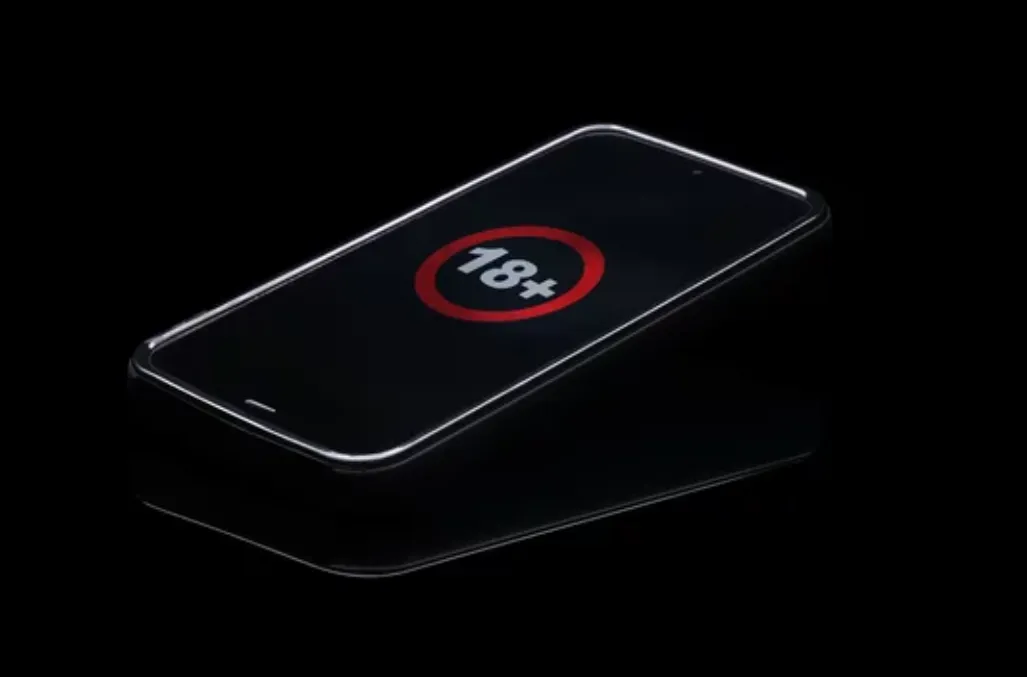
9. Resources for Further Reading
For those seeking more information and support, the following resources can provide valuable insights and assistance:
Books:
The Mindful Habit® System Workbook to End Sex & Porn Addiction, by Craig Perra is a powerful, practical guide designed to help individuals break free from the grip of addiction and reclaim their lives. Based on Craig Perra's renowned Mindful Habit System, this workbook provides step-by-step exercises, proven strategies, and actionable insights to help you take control of your behaviors and transform your life. Whether you're struggling with sex or porn addiction, this workbook offers a structured, supportive approach to recovery, empowering you to build new habits, develop emotional resilience, and create a life that aligns with your values and goals. It's more than just a workbook—it's a roadmap to lasting change and personal growth.
Breaking the Cycle, Free Yourself from Porn Addiction, Sex Obsession & Shame by George Collins is a practical guide for breaking free from sex and porn addiction.
Your Husband Is Addicted to Sex or Porn: The Spouse Survival Guide by the wife of a former porn addict, Michelle Perra, is an essential resource for anyone navigating the emotional turmoil of a partner's sex or porn addiction. Drawing from her personal experience and professional expertise, Michelle Perra offers compassionate, practical advice to help spouses understand the complexities of addiction, manage their own emotional well-being, and make informed decisions about their relationship. This guide provides invaluable insights, coping strategies, and support for those facing betrayal, helping them find strength and clarity during a challenging time. It's a lifeline for anyone seeking to heal and move forward, whether together or alone.
Atomic Habits by James Clear is essential reading for anyone struggling with porn addiction, even though it’s not specifically about addiction. The book offers powerful insights into how habits are formed and how they can be changed. Understanding and mastering your habits is crucial for recovery, and Atomic Habits provides practical strategies to help you break bad habits and build positive ones, supporting a healthier, more fulfilling life.
From Hardened to Healed, by Dr. Debi Silber, a world-recognized expert on betrayal trauma.
A Couple's Guide to Sexual Addiction: A Step-by-Step Plan to Rebuild Trust and Restore Intimacy, by Paldrom Collins.
The Myth of Sex Addiction, by Dr. David Ley, highlights the significant controversy and lack of scientific evidence in support of treating a complex problem like compulsive sexual behavior using a model based upon a 75+-year-old model invented for alcoholics.
Out of the Shadows: Understanding Sexual Addiction by Patrick Carnes – A book that explores the nature of sex addiction based upon the traditional 12-step philosophy and offers hope for recovery.
Sex Addiction 101: A Basic Guide to Healing from Sex, Porn, and Love Addiction by Robert Weiss – A straightforward guide to understanding and recovering from sex addiction.
Free Support Groups:
The 12-step program, widely recognized for its role in treating various addictions, offers both benefits and limitations when applied to porn addiction.
On the positive side, the 12 steps provide a structured, community-driven approach that emphasizes accountability, self-reflection, and spiritual growth. Many people find comfort in the shared experiences of others, which can reduce feelings of isolation and shame. The program’s emphasis on a higher power and moral inventory can also help individuals confront underlying issues and develop a sense of purpose beyond their addiction.However, the 12-step approach has its limitations. Critics argue that its focus on powerlessness can be disempowering for some, leading to a reliance on the group rather than fostering self-agency. Additionally, the one-size-fits-all nature of the program may not address the specific psychological and behavioral nuances of porn addiction. While the 12 steps can be a valuable part of a broader recovery strategy, it’s often most effective when combined with other therapeutic approaches, such as cognitive-behavioral therapy or mindfulness-based practices, which address the unique underlying causes of porn addiction.
If you are choosing a 12-Step program we recommend SLAA (Sex and Love Addicts Anonymous)
Others find these programs helpful:
Sex Addicts Anonymous – A fellowship for those addicted to pornography and sex.
COSLAA (Co-Sex and Love Addicts Anonymous) – Offers support for partners and families of sex and love addicts.
Professional Services:
Betrayal Trauma Recovery specifically for Spouses of Porn Addicts – Founded by the wife of a porn addict, this program provides expertise, support, and resources specifically for women affected by their partner’s sex addiction.
Comprehensive Treatment for Husband Porn Addict & Betrayed Spouse - The Mindful Habit. The Mindful Habit Team offers a science-based, goal-centric, and structured program to help couples in crisis due to a husband’s porn addiction. It offers comprehensive treatment programs worldwide including a 20 week at-home intensive designed to create and sustain radical change quickly.
The Post-Betrayal Trauma Institute, founded by betrayal trauma expert Dr. Debi Silber - offers great resources and a variety of treatment programs for spouses of sex and porn addicts.
BetterHelp.com - a great resource for finding a qualified therapist to help you heal your betrayal trauma and to help your porn-addicted husband.
American Association of Sexuality Educators, Counselors, & Therapists - an excellent resource to find therapist experts in human sexuality.
Seeking Integrity - a well-respected sex addiction treatment center founded by Dr. Robert Weiss that specializes in porn addiction
Certified Sex Addiction Therapists (CSATs) – although we don’t typically recommend therapists with this designation, some people might get value from a specialist trained in the traditional 12-step model to treat sex addiction and its impact on partners - International Institute for Trauma and Addiction Professionals (IITAP).
The Center for Relational Healing – Offers therapy and workshops for couples and individuals dealing with sex addiction.
Online Resources:
Sex and Relationship Healing – A website offering webinars, podcasts, and articles on porn addiction recovery.
The Institute for Sexual Health (ISH) – Provides resources and information on Dr. Omar Minwalla’s CASRD model.
The Mindful Habit offers a highly convenient, at-home, online program that brings world-class expertise right to your doorstep. With The Mindful Habit, you can access cutting-edge tools and guidance from top professionals without ever leaving your home, making it easier than ever to start your journey to recovery and personal growth on your own terms.
Podcasts:
"Sex Afflictions & Porn Addictions with Craig Perra” – the #1 podcast on compulsive sexual behavior, sex addiction and porn addiction. It dives deep into the struggles and solutions surrounding sex and porn addiction. As a world-renowned life coach and creator of The Mindful Habit System, Craig offers raw, honest insights, actionable advice, and powerful stories of transformation. He personally struggled with sex and porn addiction.
Each episode is designed to empower listeners to break free from destructive behaviors, embrace personal growth, and lead a more fulfilling life. Whether you're battling addiction yourself or supporting someone who is, this podcast provides the tools and inspiration needed to take charge of your journey.
The Virtual Couch podcast by Tony Overbay is a must-listen for anyone interested in mental health, personal development, and the challenges of modern life. While not specifically focused on porn addiction, the podcast addresses a wide range of topics that are crucial for mental well-being, from relationships and anxiety to habits and personal growth. Tony Overbay, a licensed marriage and family therapist, brings his expertise to the table, including his training in The Mindful Habit System, to offer insightful, practical advice. Whether you're looking to improve your mental health or simply want to gain a deeper understanding of the mind, The Virtual Couch provides valuable perspectives and actionable strategies to help you live a more intentional and fulfilling life.
Porn Talk with Powerful Eric is a podcast dedicated to helping individuals break free from porn addiction and reclaim their lives. Hosted by Powerful Eric, who is trained in The Mindful Habit System, this podcast blends personal stories, expert insights, and actionable strategies to empower listeners on their journey to recovery. Whether you're struggling with addiction or supporting someone who is, Porn Talk offers the tools, encouragement, and inspiration needed to overcome challenges and build a healthier, more fulfilling life.
From Betrayal to Breakthrough is a transformative podcast hosted by Dr. Debi Silber, PhD, a renowned expert in betrayal trauma. This podcast is designed for anyone who has experienced the deep pain of betrayal and is looking for a path to healing and empowerment. Dr. Silber offers expert advice, interviews with leading professionals, and real-life stories of recovery to help listeners move beyond their pain and create a life filled with purpose and joy. Whether you're dealing with betrayal in relationships, at work, or in other areas of life, From Betrayal to Breakthrough provides the guidance and inspiration you need to turn your pain into power.
Porn Free Radio with Matt Dobschuetz is a powerful Christian podcast dedicated to helping individuals break free from porn addiction and live a life of freedom and purpose. Matt Dobschuetz, a seasoned recovery coach and former porn addict, shares his personal journey and offers practical advice, proven strategies, and motivational insights to support listeners on their path to recovery. With a focus on real-world solutions and personal empowerment, Porn Free Radio provides the tools and encouragement needed to overcome addiction and build a porn-free life. Whether you're just starting your journey or looking for ongoing support, this podcast is a valuable resource for anyone committed to lasting change.
Overcoming Betrayal & Addiction, by Rob Weiss – Features discussions on sex addiction and recovery.

10. Conclusion
In this comprehensive guide, we’ve tackled the complex issue of porn addiction, exploring its definition, signs and symptoms, underlying causes, and its significant effects on personal, relational, and professional life.
We’ve also examined the science behind addiction and highlighted effective treatment options, including psychotherapy, support groups, medication, and lifestyle changes.
Addressing porn addiction is essential for reclaiming your life and achieving overall well-being. It’s not just about stopping the behavior; it’s about understanding the root causes, healing emotional wounds, and creating a healthier, more fulfilling life.
If you or someone you know is struggling with porn addiction, remember that help is out there. Seeking support is a brave and crucial step toward recovery.
Use the resources provided, connect with support groups, and consider professional help to guide you on your healing journey.
Keep in mind, you are not alone in this fight. There is hope, and with the right tools and support, you can overcome porn addiction and enjoy a more balanced and joyful life.
Quick Links
Call Us To Schedule Your Appointment:
Copyright @ 2026. The Mindful Habit® System | All Rights Reserved


